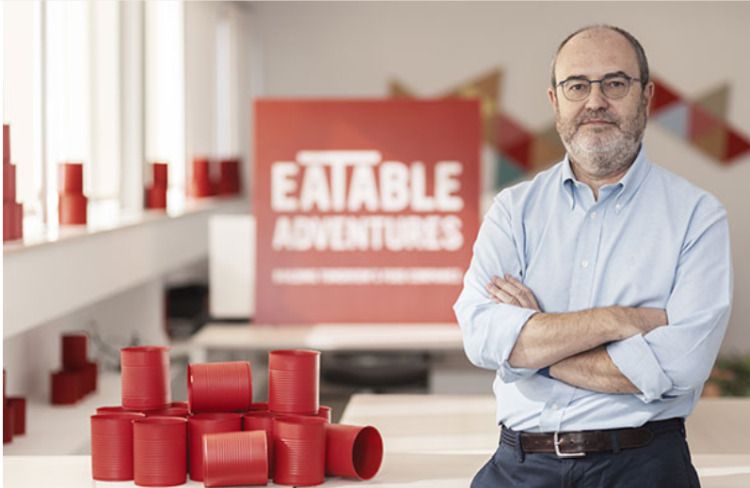Editor’s note: José Luis Cabañero is founder and CEO of Madrid-based foodtech accelerator Eatable Adventures. He also launched Foodentrepreneurs, a global network of food & beverage founders.
The views expressed in this guest article are the author’s own and do not necessarily represent those of AFN.
Spain is a food country. It’s the world’s third largest exporter of fruits and vegetables, behind China and the United States, while its food sector is a major contributor to the national economy, accounting for about 10% of its gross domestic product (GDP).
An ideal testing ground for initiatives around soil improvement, water management, controlled environment agriculture, and robotics, Spain also has a strong co-packing industry that could help startups in alternative protein, biomanufacturing and novel ingredients scale up more rapidly.
But it hasn’t built a reputation as a leading player in the transformation of the agrifood value chain through technology-based innovation…. yet.
During the past few years, however, Spain has undergone a steady transformation. As of today, more than 400 foodtech startups are operating in Spain across the value chain, attracted by increasing support from incubators and corporates, and a growing entrepreneurial community.
More importantly, they are inspired by a small but growing number of local foodtech luminaries from Heura, Moa Foodtech, and Cocuus, to Ekonoke and Cubiq Foods, startups that are garnering not only international media attention but corporate support and international investors.
Foodtech investment in Spain increased 9.3% in 2022
While global foodtech investment declined in 2022 after strong growth in 2020 and 2021, foodtech investment in Spain increased 9.3% to €268 million ($284 million) in 2022, with startups attracting international investors from Cargill to Big Idea Ventures, Rockstart, and Unovis.
So how has Spain been able to put itself on the global foodtech map so quickly?
The investment has been key, but collaboration among key players in the agrifoodtech ecosystem has undoubtedly been one of the most influential factors in accelerating the growth and development of disruptive technologies.
Innovation hubs
Public and private entities are taking an increasingly active role in creating new and innovative solutions to address a variety of challenges in this sector. Innovation hubs play a crucial part in this ecosystem and have experienced rapid growth in recent times.
Madrid Food Innovation Hub is yielding over 50 new startups each year, covering the end to end agrifood value chain and helping hundreds of new entrepreneurs get to launch their companies.
The new Eatex Food Innovation Hub, a tech transfer initiative backed by the National Center for Food Technology and Safety, is helping to foster collaborations between innovative tech based startups and established companies.
Corporate and government support
Corporate support in the form of open innovation and corporate venturing is also helping disruptive innovators. Programs such as Mylkcubator, an alternative dairy incubator launched by leading Spanish dairy brand Pascual, is working with startups across the world—from De Novo Dairy, Zero Cow Factory, and 108Labs, to Maolac and Ergo Biosciences—to help them integrate their products into the dairy value chain.
Other corporates such as Barcelona-based baking giant Europastry and beer company Mahou San Miguel have also developed open innovation projects to support startups.
Finally, government support is also building, with ICEX Spain Export and Investments launching Desafía Foodtech Netherlands, an initiative to connect the Spanish and the Dutch food ecosystems backed by NextGenerationEU funds, with the objective to support the Spanish foodtech ecosystem.
The Spanish foodtech ecosystem is poised for incredible growth
But is this just a temporary growth spurt or a sustainable trend? It looks like the latter, based on two reports published in recent weeks: ‘The State of Foodtech in Spain’ by Eatable Adventures, and the ICEX report ‘Foodtech in Spain.’
The Spanish foodtech ecosystem is poised for incredible growth. With visionary entrepreneurs, cutting-edge technologies, and robust financial support from private and public entities, the agrifood sector is on the brink of a revolution!





